Papers by Wisam Hazimeh
The Fragmentation of Al Qaeda in the Levant ajis-2024-0136
Academic journal of interdisciplinary studies, Jul 5, 2024
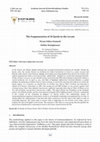
Academic Journal of Interdisciplinary Studies, 2024
In the Levant, the Islamic jihadist ideology has occupied international attention for decades. Du... more In the Levant, the Islamic jihadist ideology has occupied international attention for decades. During the Syrian crisis, the country became an incubator for radical movements to invest in a power vacuum and flourish under chaotic circumstances. Rapidly, Syria began attracting jihadists from all over the world to join radical organisations while a new kind of jihad-global jihad-indulged in a worldwide ideological firesale. Firstly, between 2011-2013, we saw jihadist armies associated with ISIS and al-Qaeda acting freely without a central authority, but on April 9, 2013, Abu Bakr al Baghdadi shifted from localised jihadism to global jihadism, by declaring an Islamic State in Syria and Iraq, to attack the international coalition as well as the Syrian regime. As a response, six months later in October 2013, Hay'at Tahrir Al Sham was launched in refusal of al-Nusra's annexation to ISIS, and uniting all anti-ISIS militias on the ground against their common enemy. Since then, jihadism has become conflicted, especially when Hay'at Tahrir Al Sham cut its ties with al-Qaeda, and all three entered into conflict. This paper follows the breakdown of the al-Qaeda project, the setbacks of ISIS, and the crisis between al-Qaeda and its offshoot branch, al-Nusra, culminating in the creation of the "Guardian of Religion" or, Hurras al-Din. The methodology utilises an institutionalisation approach and primary resources of al-Qaeda's leadership and spokespersons in order to closely follow the confrontations it has had with other movements, and the steps it has taken in order to eventually fragment. The study seeks to answer what is happening on the terrorist scene today, and to evaluate the role of al-Qaeda in the Levant. The outcome is that there is a new group that has grabbed the baton from al-Qaeda and is continuing its work in the Levant, named Hurras Ad-Din.
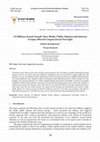
Academic Journal of Interdisciplinary Studies, 2024
It has been more than 30 years since the first sexual assault in the US military scandal; thousan... more It has been more than 30 years since the first sexual assault in the US military scandal; thousands of sexual assault survivors as well as numerous legislative regulations have not been able to address effectively the situation. In 2022, the Military Justice Improvement and Increasing Prevention Act (MJIIPA) finally passed. The article addresses what changed to allow the passage of this legislation and if it will be enough to fix the problem. The research questions are: What changed during Congressional Oversight to achieve the passage of MJIIPA? Media, Public Opinion and Interest Groups (IG) have played what role to achieve the changes in Congress? By making the changes to the COC what is to be expected? Will it be enough to address the issue? This article uses the case study method. The results of this examination demonstrate that neither media, public opinion nor interest groups provided the influence expected. It was elite cues and those committed to reforming the system as a continuous process, not an ad hoc procedure that pushed forward the reforms.
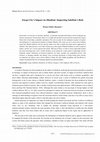
Dirasat: Human and Social Sciences, May 12, 2020
Particularly over the past two decades, Salafism, a commonly misunderstood Islamic school of thou... more Particularly over the past two decades, Salafism, a commonly misunderstood Islamic school of thought, has become synonymous with terrorism. However, in depth and specified research into this transition has largely fallen short of providing a plausible explanation. This also accounts for the inadequate response of regimes and intelligence in countering the ideology of Salafist Jihadism. This study sets out to answer how Salafism turned into Jihadist Salafism, and why specific leaders were able to impact the region and its application of Salafism. This study presents a case study of Zarqa city as the origin of Jihadist Salafism, its most recognised leaders, and the city's on the regional movements, ISIS and al-Nosra, in order to better understand modern day terror and impact how such a volatile ideology can be primed for a more positive relationship with the Jordanian regime. Following an historical approach, the study considers key geopolitical factors with reference to changing attitudes and identity crises occurring specifically in Zarqa during these periods, revealing how key players such as Nasser Eddin al-Albani, the Arab Afghan mujahidin, and Abu Musab al-Zarqawi transformed the face of Jordanian jihadism and global jihadism.
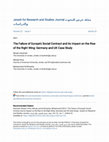
جرش للبحوث والدراسات
Homegrown terrorism, or domestic terrorism, has been on the rise in correlation with the number o... more Homegrown terrorism, or domestic terrorism, has been on the rise in correlation with the number of refugee and migrant populations within Europe. Not only has radical Islamist terrorism become prevalent, but alongside this trend, Europeans find that farright extremism is a mirrored manifestation of extremist Islamist ideology. While Europe fails to properly address the root causes of this crisis, European states propel further into individual identity crises that fester into extremism. Prejudice, divisive policies, and sectarianism leave societies to find legitimacy elsewhere as the harmonic order and social contract within society fails, and people revert to smaller factions as they cannot reap the benefits of a functioning social contract. This article utilizes Jean-Jacque Rosseau's social contract theory to analyze how a society that does not sufficiently adapt to multiculturalism and diversity, leads to extremist pockets in the long run. The analysis conducted draws upon statistical data from the European Commission's research on extremism within the Union, as well as scholarly research on identity theory and terrorism.
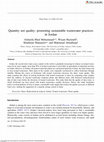
Water Policy, 2020
Jordan, the second most water-scarce country in the world, is gradually increasing its reliance o... more Jordan, the second most water-scarce country in the world, is gradually increasing its reliance on treated wastewater for its water supply; more than 90% of treated wastewater is used either in agricultural or industrial activities in Jordan. However, in Jordan, all treated wastewater plants are constructed upstream of dams, the latter being used to store treated wastewater. Most dams in the country were originally constructed to collect freshwater through rainfalls. Mixing this source of freshwater with treated wastewater decreases the dams' water quality. This study examines the effects of mixing freshwater with treated wastewater in dams by comparing water samples from the outflows of selected wastewater treatment plants and different dams with historical hydrochemical data of dam water before the diversion of treated wastewater. This study finds that the quality of dam water, in which freshwater has been mixed with treated wastewater, notably decreases. Hence, this study for...
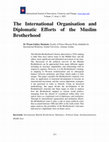
International Journal of Innovation, Creativity and Change, 2023
The Muslim Brotherhood's history dates back to 1928, making it older than most nation states in t... more The Muslim Brotherhood's history dates back to 1928, making it older than most nation states in the Middle East, and the oldest, most significant and influential movement of our time. The discussion of the political survival of the Muslim Brotherhood can be approached from many different angles including its structure, adaptability, and relationship with its respective regimes. However, it is the Brotherhood's strategy in adapting to Western modernisation and its subsequent balance between modernity and Islam which makes it truly unique. This paper considers the Brotherhood's maturity over time, its application of structural development to become an international movement, and the various diplomatic strategies it has practised in order to flourish. Using an historical methodology, this paper divides the development of the Brotherhood's structure into three stages in order to analyse how the Brotherhood adapted to current world politics, emerging from the shroud of victimhood within their own nation states as a legitimate tool of diplomacy and mediation. Through its international organisation and mediation efforts, the Brotherhood came to play a role in many political crises that occurred between 1980 and 2001 in the Arab world. This paper analyses the possibility of the Brotherhood's relevance and need as a diplomatic force in future crises.
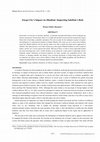
على مدار العقدين الماضيين، أصبح مصطلح السلفية التي تعرف بأنها مدرسة فكرية إسلامية، ويساء فهمها بش... more على مدار العقدين الماضيين، أصبح مصطلح السلفية التي تعرف بأنها مدرسة فكرية إسلامية، ويساء فهمها بشكل عام، مصطلحا مرادفا للإرهاب، وإن الأبحاث الدقيقة والمتعمقة في هذا التحول لم توفق بتقديم تفسير منطقي لهذا الترابط، وهو ما قد يفسر أيضا قصور استجابة الأنظمة وأجهزة المخابرات لمواجهة أيديولوجية الجهادية السلفيةالتي تهدف لدراسة للإجابة على كيفية تحول السلفية إلى السلفية الجهادية، ولماذا تمكن قادة سلفيون معينون من التأثير على المنطقة وتطبيق السلفية فيها، وتقدم هذه الدراسة حالة دراسية لمدينة الزرقاء باعتبارها أصل السلفية الجهادية، وقادتها الأكثر شهرة، وتتطرق إلى تأثير المدينة على الحركات الإقليمية: داعش والنصرة، حتى يتسنى فهم الإرهاب المعاصر بصورة أفضل، وطريقة التعامل مع بيئة تطوير هذه الأيدلوجية المتقلبة واستخدامها لتكوين علاقة أكثر إيجابية مع النظام الأردني من خلال اتباع نهج تاريخي، وتتناول هذه الدراسة العوامل الجيوسياسية الرئيسة مع الإشارة إلى تغير المواقف والسلوكيات، وأزمة الهوية التي تحدث على تحديدا في الزرقاء خلال هذه المدد الزمنية، وتكشف عن أدوار شخصيات مثل: ناصر الدين الألباني، والمج...
This paper aims to understand the driving beliefs of those who join ISIS and unpick its unique na... more This paper aims to understand the driving beliefs of those who join ISIS and unpick its unique nature, answering what makes ISIS exceptional. The paper assess how ISIS survives in the face of territorial setbacks and investigates ISIS from outer and inner perspectives, employing case study approach through primary and secondary literature to provide insight into the main differences between al-Qaeda and ISIS. Further, the paper traces the history of other terrorist movements in relation to changing geopolitics, and explores ISIS’s profound relationship with millennials who in it find agency and instant gratification. Due to its ideological nature ,its radical belief and its virtual relationship with world-wide followers, ISIS maintains the possibility of surviving and reproducing itself in another form despite its setback and lacking territory,.
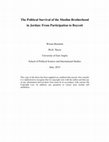
This thesis explores the development of relations between the Jordanian Muslim Brotherhood and Jo... more This thesis explores the development of relations between the Jordanian Muslim Brotherhood and Jordanian regime from 1945 to 2010, in which a distinction is made between the pre- and post-1989 eras that demarked a significant shift from partnership to crisis. Utilising an historical approach, the first era is defined by both parties’ mutual pragmatism, establishing a unified understanding of the Palestinian issue, and what the nature of politics in Jordan would be. However, the post-1989 era is analysed within the context of the regime’s shift in interests from internal to external issues, subsequently changing its pragmatic discourse towards the Brotherhood and Islamic movements. This study suggests that the shift in the regime’s focus, teamed with the implementation of policies such as the ‘one vote system’ and the peace treaty with Israel, left a space for radical voices to rise within the Brotherhood. To understand if the Brotherhood is compatible to Jordan’s parliamentarian sys...
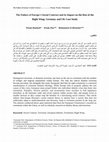
Homegrown terrorism, or domestic terrorism, has been on the rise in correlation with the number o... more Homegrown terrorism, or domestic terrorism, has been on the rise in correlation with the number of refugee and migrant populations within Europe. Not only has radical Islamist terrorism become prevalent, but alongside this trend, Europeans find that far-right extremism is a mirrored manifestation of extremist Islamist ideology. While Europe fails to properly address the root causes of this crisis, European states propel further into individual identity crises that fester into extremism. Prejudice, divisive policies, and sectarianism leave societies to find legitimacy elsewhere as the harmonic order and social contract within society fails, and people revert to smaller factions as they cannot reap the benefits of a functioning social contract. This article utilizes Jean-Jacque Rosseau's social contract theory to analyze how a society that does not sufficiently adapt to multiculturalism and diversity, leads to extremist pockets in the long run. The analysis conducted draws upon statistical data from the European Commission's research on extremism within the Union, as well as scholarly research on identity theory and terrorism.
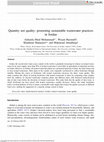
Jordan, the second most water-scarce country in the world, is gradually increasing its reliance o... more Jordan, the second most water-scarce country in the world, is gradually increasing its reliance on treated wastewater for its water supply; more than 90% of treated wastewater is used either in agricultural or industrial activities in Jordan. However, in Jordan, all treated wastewater plants are constructed upstream of dams, the latter being used to store treated wastewater. Most dams in the country were originally constructed to collect freshwater through rainfalls. Mixing this source of freshwater with treated wastewater decreases the dams' water quality. This study examines the effects of mixing freshwater with treated wastewater in dams by comparing water samples from the outflows of selected wastewater treatment plants and different dams with historical hydrochemical data of dam water before the diversion of treated wastewater. This study finds that the quality of dam water, in which freshwater has been mixed with treated wastewater, notably decreases. Hence, this study formulates policy recommendations on how to ensure a sustainable water supply that ensures the quality necessary to different water uses, making the suggestion of a separate storage system in dams.
Dirasat, Human and Social Science, 2019
This paper aims to understand the driving beliefs of those who join ISIS and unpick its unique na... more This paper aims to understand the driving beliefs of those who join ISIS and unpick its unique nature, answering what makes ISIS exceptional. The paper assess how ISIS survives in the face of territorial setbacks and investigates ISIS from outer and inner perspectives, employing case study approach through primary and secondary literature to provide insight into the main differences between al-Qaeda and ISIS. Further, the paper traces the history of other terrorist movements in relation to changing geopolitics, and explores ISIS's profound relationship with millennials who in it find agency and instant gratification. Due to its ideological nature, its radical belief and its virtual relationship with worldwide followers, ISIS maintains the possibility of surviving and reproducing itself in another form despite its setback and lacking territory.
Thesis Chapters by Wisam Hazimeh
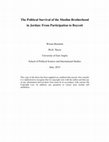
uea e prints, 2015
This thesis explores the development of relations between the Jordanian Muslim Brotherhood and Jo... more This thesis explores the development of relations between the Jordanian Muslim Brotherhood and Jordanian regime from 1945 to 2010, in which a distinction is made between the pre- and post-1989 eras that demarked a significant shift from partnership to crisis. Utilising an historical approach, the first era is defined by both parties’ mutual
pragmatism, establishing a unified understanding of the Palestinian issue, and what the nature of politics in Jordan would be. However, the post-1989 era is analysed within the context of the regime’s shift in interests from internal to external issues, subsequently changing its pragmatic discourse towards the Brotherhood and Islamic movements. This study suggests that the shift in the regime’s focus, teamed with the
implementation of policies such as the ‘one vote system’ and the peace treaty with Israel, left a space for radical voices to rise within the Brotherhood. To understand if the Brotherhood is compatible to Jordan’s parliamentarian system, the research identifies circles of division within the Brotherhood between Hassan al-Banna and Sayyid Qutb’s ideologies in the wake of regional conflict and poor regime-Islamist relations. This bifurcation is exacerbated in Jordan, as seen with the opposing fronts of
the Jordanian Brotherhood’s Shoura Council: Hawks of Palestinian origin vs. Doves of Jordanian origin, claiming a new division: the ‘new’ Hawks, or, the ‘Salafist Brotherhood’. Supported by exclusive personal interviews with Brotherhood leaders, this thesis argues that allowing Islamist movements’ limited political participation in Jordan is essential for the country’s stability and religious modernity as since the 2007 boycott, increasing numbers of al-Bannaist Doves have converted into Qutbist Hawks. This has empowered the Hawks to demand fundamental reforms regarding the monarchy’s existence, initiating the Brotherhood’s final 2010 political boycott, and positioning the once-allied movement outside the political process and indefinitely removed from accountability.
Magazine Article by Wisam Hazimeh
مجلة أفكار , 2019
عشرون عاماً ومشروع جلالة الملك ما زال حياً في ضمير الأمة مستمداً قوته من إدارة الملك الإصلاحية وا... more عشرون عاماً ومشروع جلالة الملك ما زال حياً في ضمير الأمة مستمداً قوته من إدارة الملك الإصلاحية والمدنية. إنّ إيمانه بالإصلاح الشامل سياسياً واقتصادياً منهج وهدف يشترك به كل أطياف المجتمع في المكاسب وتوسيع قاعدة المشاركة الشعبية. ولأنّه حلم الأجيال فهو قائمٌ على مثلث راسخةٌ أضلاعه على دولة مدنية وإصلاح سياسي واقتصادي، وقد عرّف جلالته الدولة المدنية بأنها "دولة تحتكم إلى الدستور والقوانين التي تطبقها على الجميع دون محاباة؛ وهي دولة المؤسسات التي تعتمد نظاما يفصل بين السلطات ولا يسمح لسلطة أن تتغول على الأخرى، وهي دولة ترتكز على السلام والتسامح والعيش المشترك وتمتاز باحترامها وضمانها للتعددية واحترام الرأي الآخر".
Drafts by Wisam Hazimeh
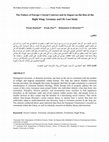
Jerash for Studies and Research , 2020
Homegrown terrorism, or domestic terrorism, has been on the rise in correlation with the number o... more Homegrown terrorism, or domestic terrorism, has been on the rise in correlation with the number of refugee and migrant populations within Europe. Not only has radical Islamist terrorism become prevalent, but alongside this trend, Europeans find that far-right extremism is a mirrored manifestation of extremist Islamist ideology. While Europe fails to properly address the root causes of this crisis, European states propel further into individual identity crises that fester into extremism. Prejudice, divisive policies, and sectarianism leave societies to find legitimacy elsewhere as the harmonic order and social contract within society fails, and people revert to smaller factions as they cannot reap the benefits of a functioning social contract. This article utilizes Jean-Jacque Rosseau's social contract theory to analyze how a society that does not sufficiently adapt to multiculturalism and diversity, leads to extremist pockets in the long run. The analysis conducted draws upon statistical data from the European Commission's research on extremism within the Union, as well as scholarly research on identity theory and terrorism.






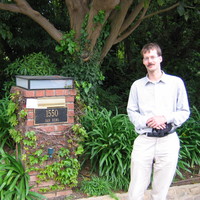

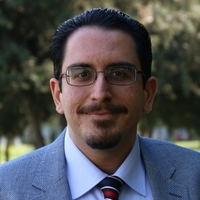

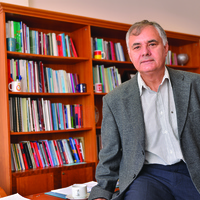
Uploads
Papers by Wisam Hazimeh
Thesis Chapters by Wisam Hazimeh
pragmatism, establishing a unified understanding of the Palestinian issue, and what the nature of politics in Jordan would be. However, the post-1989 era is analysed within the context of the regime’s shift in interests from internal to external issues, subsequently changing its pragmatic discourse towards the Brotherhood and Islamic movements. This study suggests that the shift in the regime’s focus, teamed with the
implementation of policies such as the ‘one vote system’ and the peace treaty with Israel, left a space for radical voices to rise within the Brotherhood. To understand if the Brotherhood is compatible to Jordan’s parliamentarian system, the research identifies circles of division within the Brotherhood between Hassan al-Banna and Sayyid Qutb’s ideologies in the wake of regional conflict and poor regime-Islamist relations. This bifurcation is exacerbated in Jordan, as seen with the opposing fronts of
the Jordanian Brotherhood’s Shoura Council: Hawks of Palestinian origin vs. Doves of Jordanian origin, claiming a new division: the ‘new’ Hawks, or, the ‘Salafist Brotherhood’. Supported by exclusive personal interviews with Brotherhood leaders, this thesis argues that allowing Islamist movements’ limited political participation in Jordan is essential for the country’s stability and religious modernity as since the 2007 boycott, increasing numbers of al-Bannaist Doves have converted into Qutbist Hawks. This has empowered the Hawks to demand fundamental reforms regarding the monarchy’s existence, initiating the Brotherhood’s final 2010 political boycott, and positioning the once-allied movement outside the political process and indefinitely removed from accountability.
Magazine Article by Wisam Hazimeh
Drafts by Wisam Hazimeh
pragmatism, establishing a unified understanding of the Palestinian issue, and what the nature of politics in Jordan would be. However, the post-1989 era is analysed within the context of the regime’s shift in interests from internal to external issues, subsequently changing its pragmatic discourse towards the Brotherhood and Islamic movements. This study suggests that the shift in the regime’s focus, teamed with the
implementation of policies such as the ‘one vote system’ and the peace treaty with Israel, left a space for radical voices to rise within the Brotherhood. To understand if the Brotherhood is compatible to Jordan’s parliamentarian system, the research identifies circles of division within the Brotherhood between Hassan al-Banna and Sayyid Qutb’s ideologies in the wake of regional conflict and poor regime-Islamist relations. This bifurcation is exacerbated in Jordan, as seen with the opposing fronts of
the Jordanian Brotherhood’s Shoura Council: Hawks of Palestinian origin vs. Doves of Jordanian origin, claiming a new division: the ‘new’ Hawks, or, the ‘Salafist Brotherhood’. Supported by exclusive personal interviews with Brotherhood leaders, this thesis argues that allowing Islamist movements’ limited political participation in Jordan is essential for the country’s stability and religious modernity as since the 2007 boycott, increasing numbers of al-Bannaist Doves have converted into Qutbist Hawks. This has empowered the Hawks to demand fundamental reforms regarding the monarchy’s existence, initiating the Brotherhood’s final 2010 political boycott, and positioning the once-allied movement outside the political process and indefinitely removed from accountability.